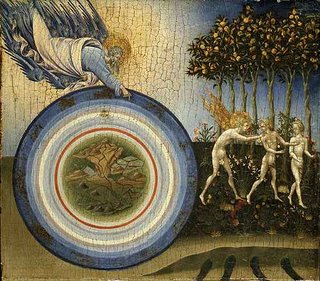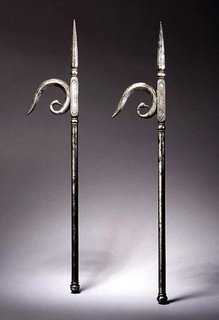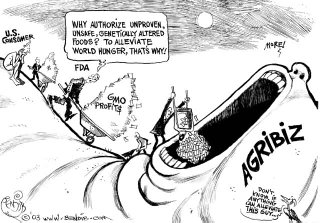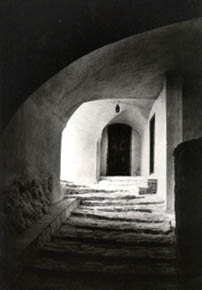
The epistle of James has long presented dificulties for protestant New Testament scholars. Its seemingly moralistic tone, its apparent inattention to theological concerns, its defense of "justification by works" all have made it difficult for Protestant interpreters to discern its compatibility with other New Testament books. Luther's dismissal of James as an "epistle of straw" was only a characteristically blunt expression of an attitude shared by many. Of course this is not a problem for us; only for those looking to establish non-New Testament based views.
Recognizing the parallels between James and the Gospel of Matthew points us toward a more correct assessment of the epistle's character. There are many of the themes common to the two books. I will cite only a few: rejoicing in trials (Mt. 5:12; Jas. 1:2); perfection (Mt. 5:48; Jas. 1:4); meekness (Mt. 5:3, 5, 9; Jas. 3:13, 17-18); anger (Mt. 5:22; Jas. 1:20); the poor (Mt. 5:3, 25:35; Jas. 2:5, 16).
Several passages, moreover, show that the epistle of James has a more theological orientation than many protestant commentators acknowledge. In particular, there are several passages in which James alludes to the early chapters of Genesis in ways that display a penetrating grasp of biblical theology. Let us discuss two such passages.
1. James 1:12-18. The epistle of James begins with a discussion of two types of temptation. In 1:2-4, James encourages his readers to rejoice even in the midst of trials and afflictions. Such "temptations" bring endurance and perfection. In the background of these verses is James's confidence that the Lord is working even in these trials and affliction for the good of His body, the called.
In verses 12-18, James turns to a discussion of temptation in the moral sense. In this sense, James insists, we cannot say, "We are being tempted by God." God governs the circumstances that aflict and try us, but He cannot be accused of encouraging sin. For James, this is axiomatic, a simple implication of the holy and just character of God; the reason we cannot say, "God is tempting me," is simply that "God cannot be tempted by evil, and He Himself does not tempt anyone" (v. 13).
In 1:14-15, James argues that we are enticed to sin not by our external circumstances but by our own evil desires or lusts. James uses conception and birth as an analogy for the process by which temptation leads to sin. Having given into temptation, lust conceives (the word describes the female role in conception) and then bears sin. Sin, in turns, fulfills itself in death. Already, we can see a faint reference to the temptation of Eve in Eden: She first desired the fruit, and then, having conceived, her desire gave birth to sin and her sin led to death.
That Genesis forms the background to these verses is confirmed when we examine verses 17-18, where James continues and develops the conception-birth imagery. Men give birth to sin; God, by contrast, is not the Father of sin, but the Father of lights. This is clearly a reference to Genesis 1's account of God's creation of the lamps of the firmament on the fourth day. Only good things come down from the One who created light; no darkness comes from Him; all His works are very good.
The phrase, "Father of lights," however, is dificult. If James has only the creation account in mind, it is an odd way to speak of God's relationship with the luminaries of heaven. "Creator," "Lord," or "Prince" of lights would be more expected. The use of "Father" thus points not only to the Creator but to the Redeemer, and suggests that the "lights" in view are the Lord's sons and daughters. The thought becomes clearer when we recall that the heavenly lights are often symbols of God's redeemed people (Gen. 26:4; Dan. 12:3). Specifically, the heavenly lamps signify God's people as a royal race. James's thought, then, is this: God does not tempt because He is not a God who gives birth to sin and death; instead, He is Father to a righteous, royal race that shines like the lights of heaven. His children are not death and sin, but lights.
The remainder of verse 17 emphasizes that since the Lord is the Father of lights, He does not change as the heavenly bodies do. Using several technical astronomical terms, James indicates that the Creator is not subject to the variation or darkening that the world is subject to. The light of the sun disappears each night; in the creation, God separated darkness and night. But the Creator is pure, eternal Light.
The birth imagery is carried on into verse 18. By the same word that brought about the first creation, God brings forth His people as the firstfruits of a new creation. Adamic man gives birth only to sin and death; the Father of lights brings forth a new creation. "Lights" and "firstfruits" are therefore two ways to describe the Lord's re-created people.
This passage, then, shows that James had a theological foundation to his moral exhortations. Here James comes very close to Pauline theology, especially in the use both make of the creation of light in drawing an analogy between creation and redemption (e.g., 2 Cor 4:6; 5:17).
2. James 3:7-8. One of the dominant themes of the epistle is the proper use of the tongue. Much of the third chapter is devoted to exhortations to control the tongue.
Verses 7-8 provide another example of James's creative use of biblical theology, and of the early chapters of Genesis in particular. Verse 7 is an obvious allusion to the mandate of Genesis 1:26-28, though James's list of animals is different from that of Genesis (interestingly, it includes reptiles). Both passages are concerned with human mastery over the lower creatures.
But James gives a remarkable twist to this allusion. Instead of considering the "dominion mandate" as a continuing project, he says that it is completed. Every animal of the heavens, earth, and sea have been brought under the yoke of man. Even the serpent-like "reptiles" have been mastered. Yet, though the creation mandate is completed, man has not yet tamed his own poisonous tongue (v. 8).
James would surely admit that some animals have not been tamed. The point, however, is to bring attention to the true character of the Christian's dominion. The unrighteous frequently rule the lower creation, but are incapable of reining in their own sin. Having died and risen with Christ, the Christian is freed from the mastery of sin and given resurrection power to live in holiness and righteousness.
The most important dominion is not dominion over the lower creation, but dominion over the flesh. Controlling the tongue, James implies, is one of the chief manifestations of this Spiritual dominion.
Man's initial act of dominion involved the tongue: naming the animals. His fall also involved the tongue. Adam stood by and failed to interrupt the serpent's attempt to seduce Eve, and then Adam lied to God. Thus, James is reflecting on the place of the tongue, the human image of the word of God, in directing human life. The "Father of lights" spoke the world into existence; man corrupted it with his words.
All of this shows an intense theological reflection upon Genesis 1-3.








